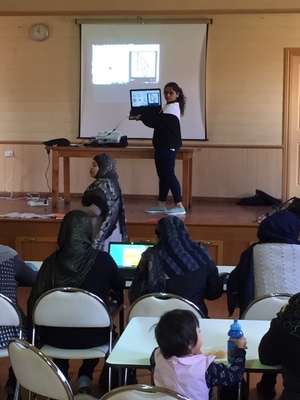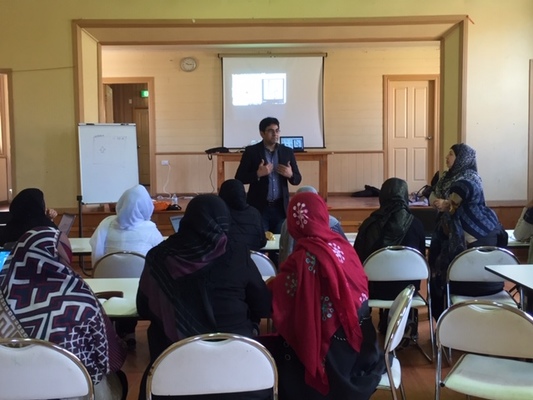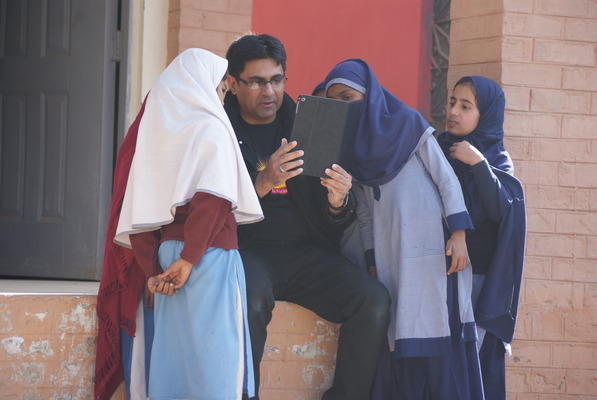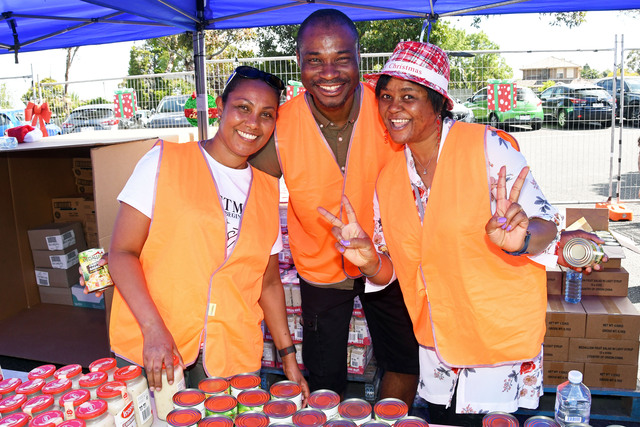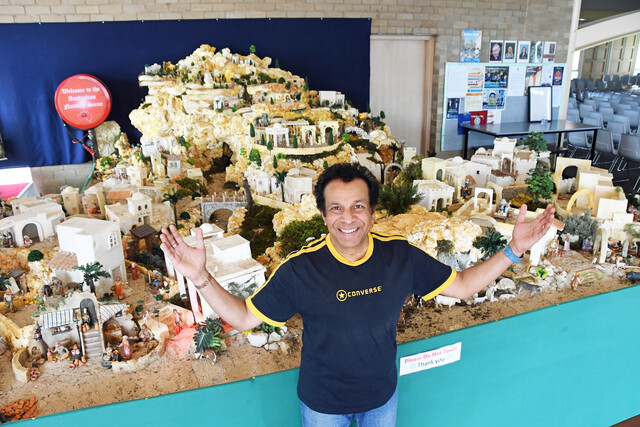“I think this picture literally speaks thousands of words,” says Ashir Ahmed.
He’s looking at a photo of a disabled school girl in Pakistan who had developed the skills to operate a robot by herself, thanks to Mr Ahmed’s Digital School in a Van program.
The Digital School in a Van – also known as a Digital Access Vehicle, or DAV – brought technology to ‘outback’ Pakistan, helping school students to learn the skills required to flourish in the connected era.
The Cranbourne North resident had always been passionate about helping others and had done some charity work in his home country of Pakistan before moving to Australia in 2006, but the idea for DAV came about through his work as a senior lecturer in media and communication at Swinburne University.
He began considering what could be done systematically to create a positive impact in society through technology. Keen to do something out in the field, he packed a van full of laptops, desktop computers, a printer, projector and robot – donated by his son – to take to four schools in Pakistan.
Working with a local organisation, DAV reached dozens of students whose confidence and abilities steadily grew.
Back in Australia, Mr Ahmed realised that the Digital School in a Van was also needed in his own backyard.
After talking with members of the Hazara community, he partnered with Community Four and the Australian Hazara Women Friendship Network to customise and deliver the program to the growing community of Hazara refugees in Dandenong.
Since the late 1990s, hundreds of members of the Hazara community have fled violence in Afghanistan and migrated to south-east Victoria.
Acknowledging that many of the Hazaras were unable to drive or communicate well in English, he was determined to “take the solution to their problem.”
The learnings from Pakistan were tweaked for the new context, working with a team from Swinburne and a translator to ensure it was culturally appropriate. Where previously Mr Ahmed had delivered the program to students, now he was teaching mostly mothers. The six classes focused on using technology to interact with important services like government websites.
“We don’t try to teach them computers as computers, we try to teach them computers as an enabler that can help them to do the things they have to do,” he says.
“It’s more than just the computer; it’s how you gel into family and society.”
DAV has been hugely popular amongst Dandenong’s Hazara community, so much so that Mr Ahmed is now looking at scaling up the program and taking it to new areas.
“We are trying to see how we can customise our offerings to make sure it is personalised and people can use these services. And the best thing is to work close to the ground, directly with the people and see what they actually want rather than design something behind closed doors with the lights off,” he explains.
That mindset is indicative of his philosophy in life.
“It doesn’t matter if you lead or follow, you just need to be ready to contribute and have an impact. Unfortunately there are too many problems in the world we are living in, but at the same time I think it offers opportunities for us to do something good. We’ll do whatever we can possibly do,” he says.

